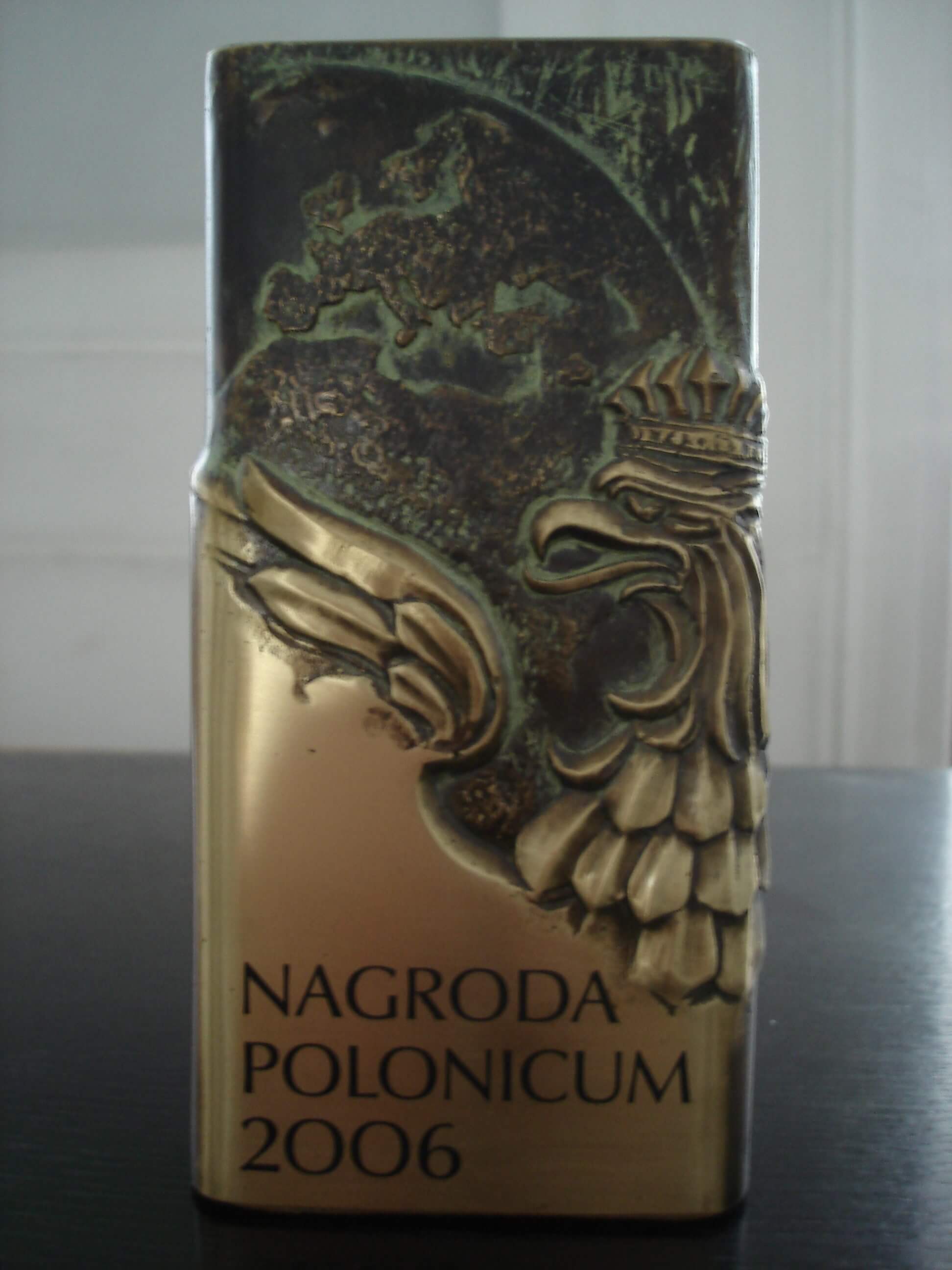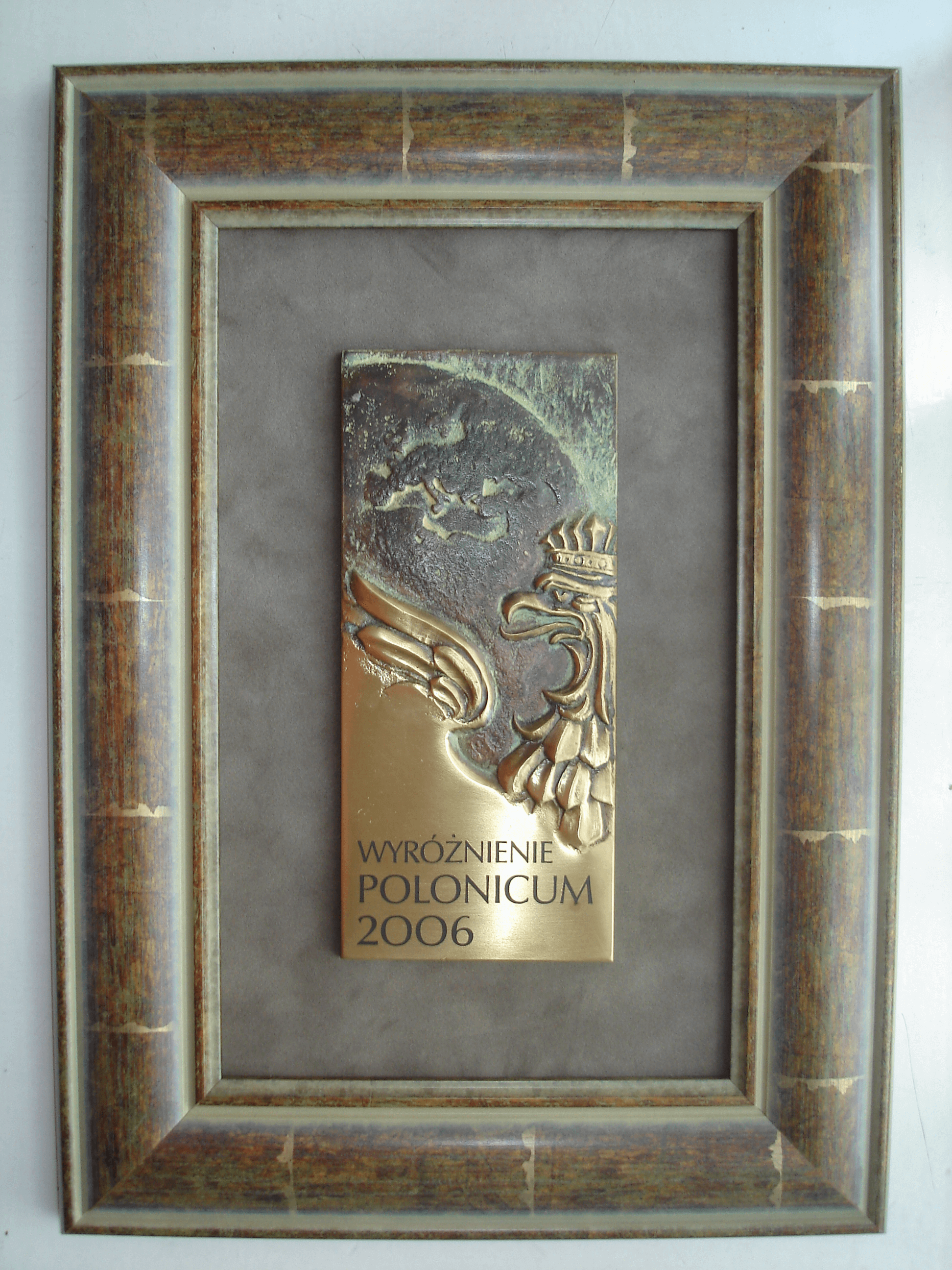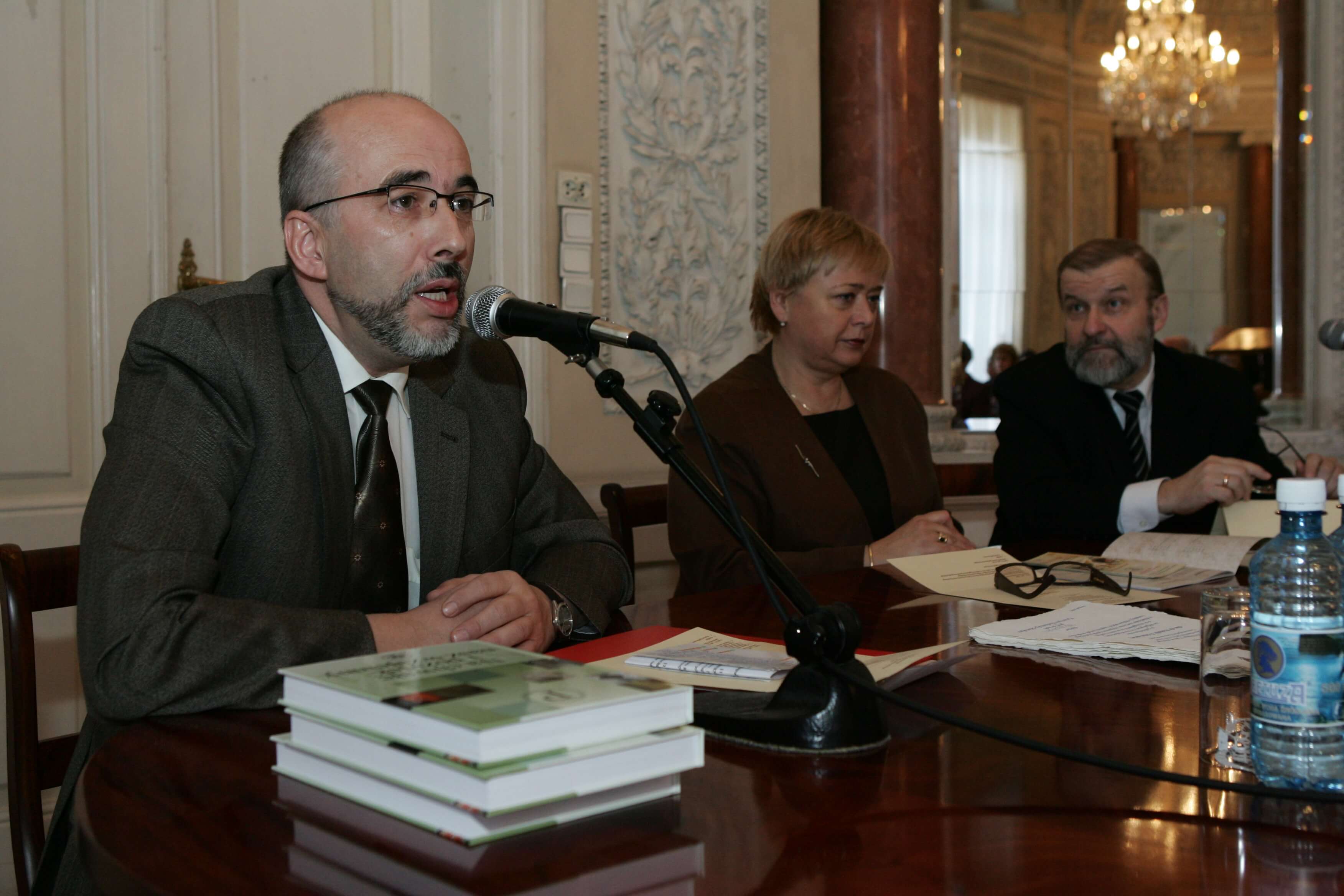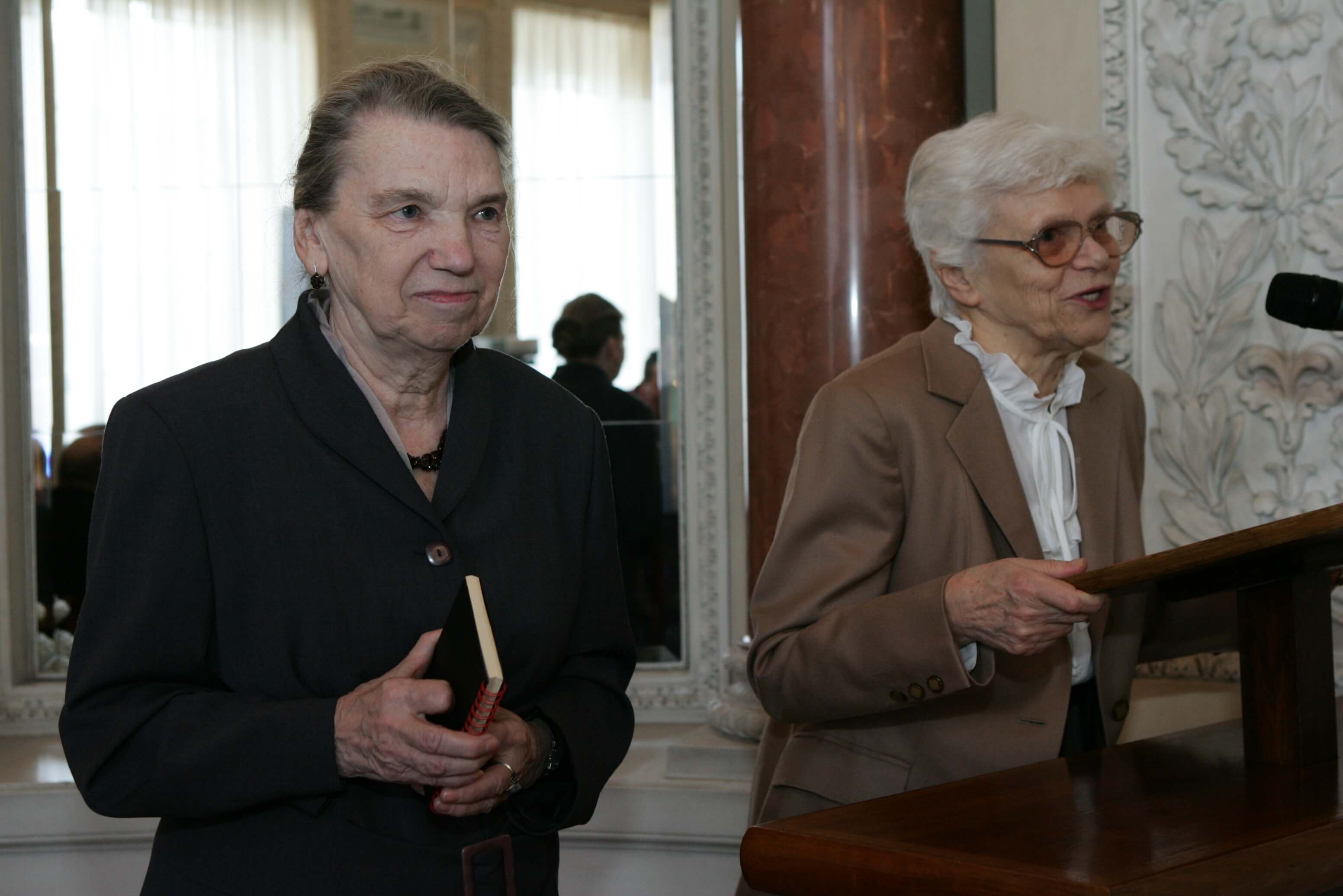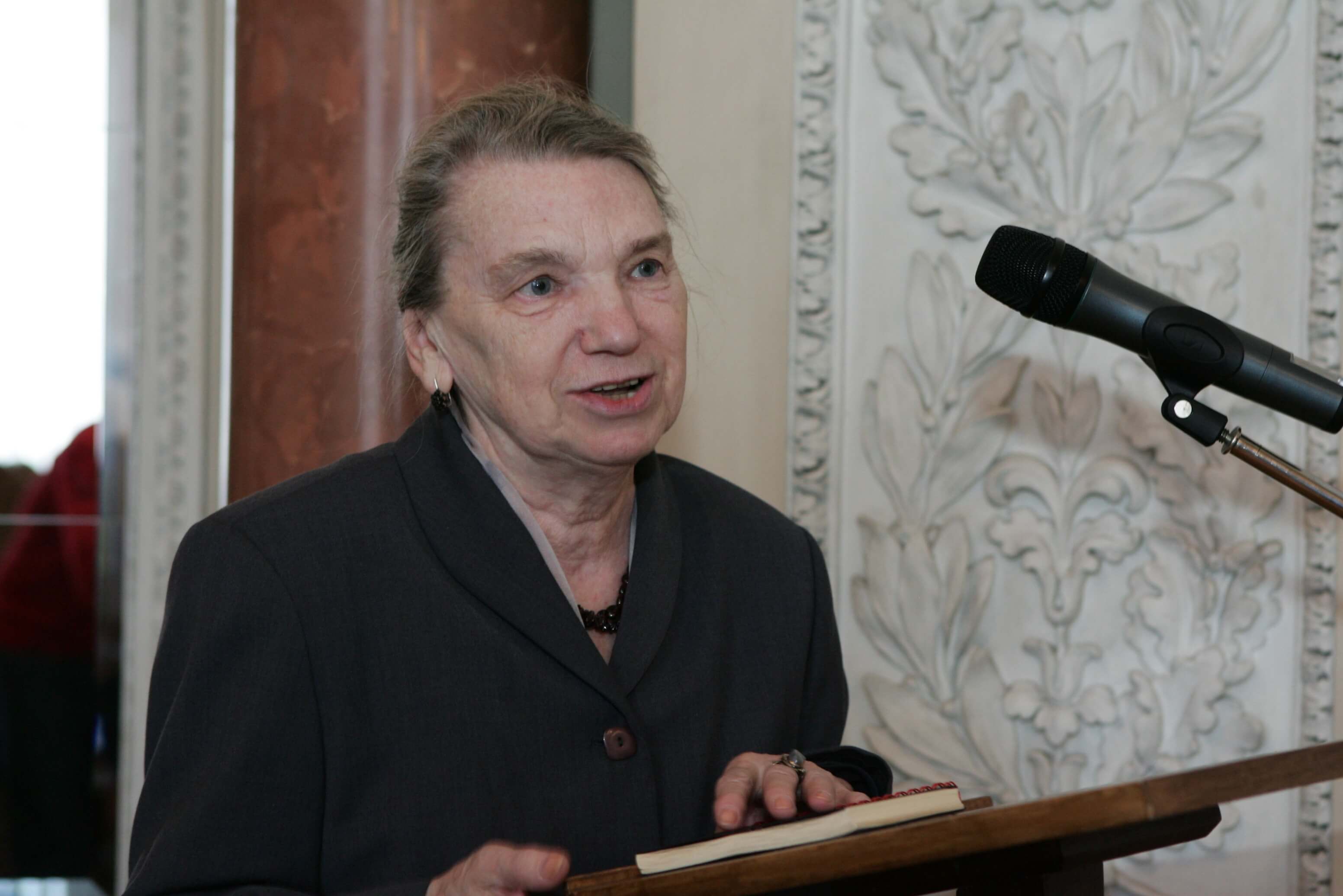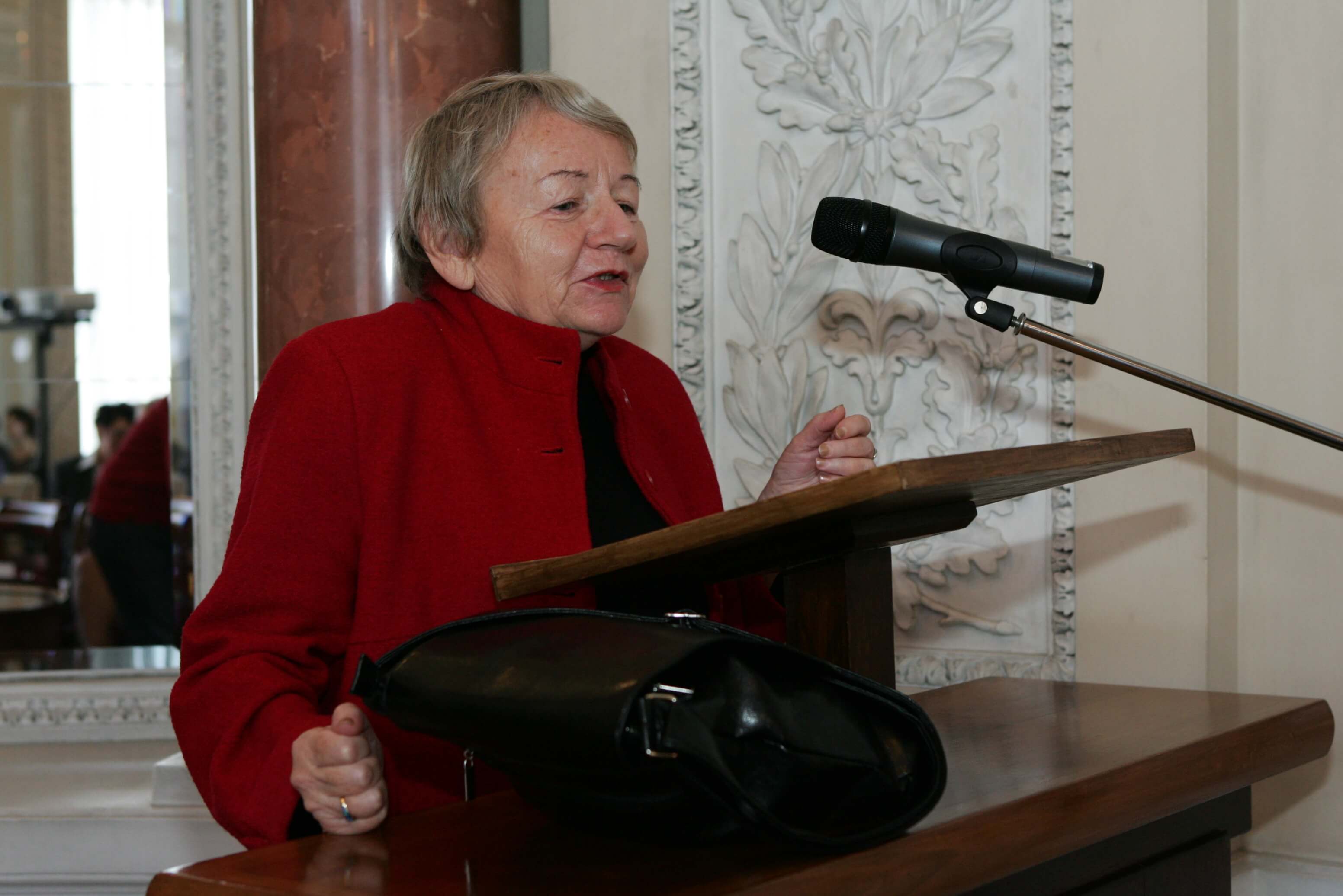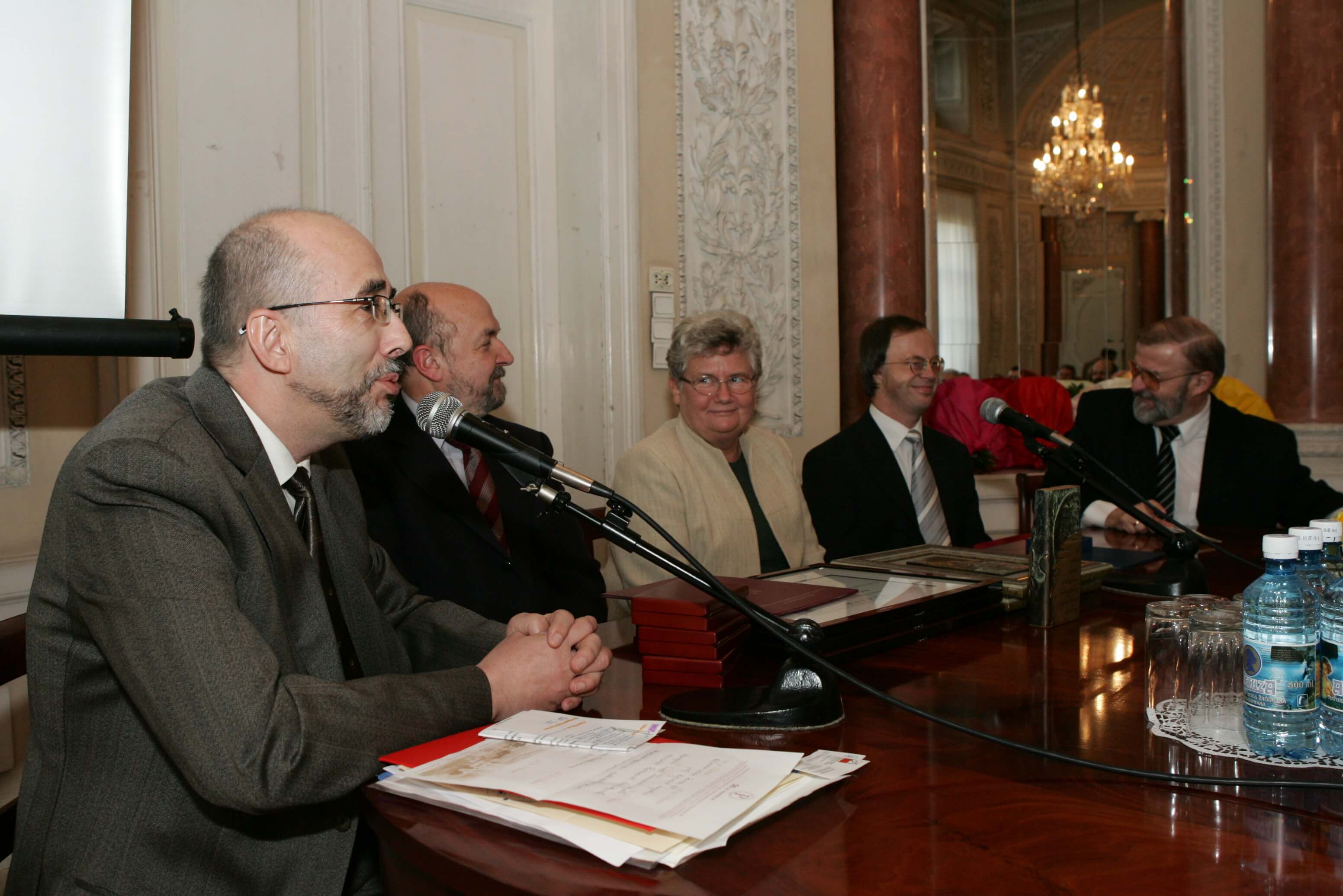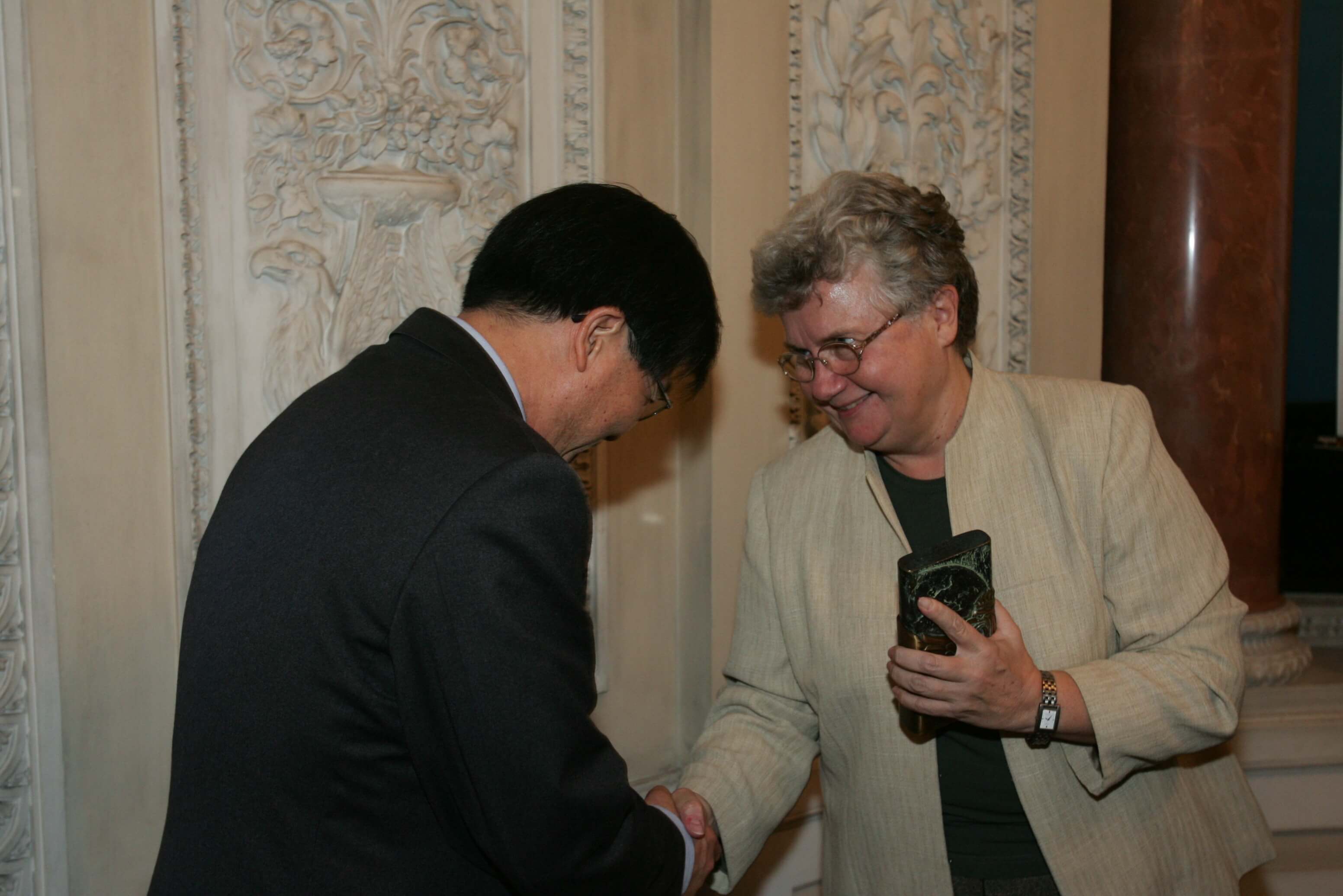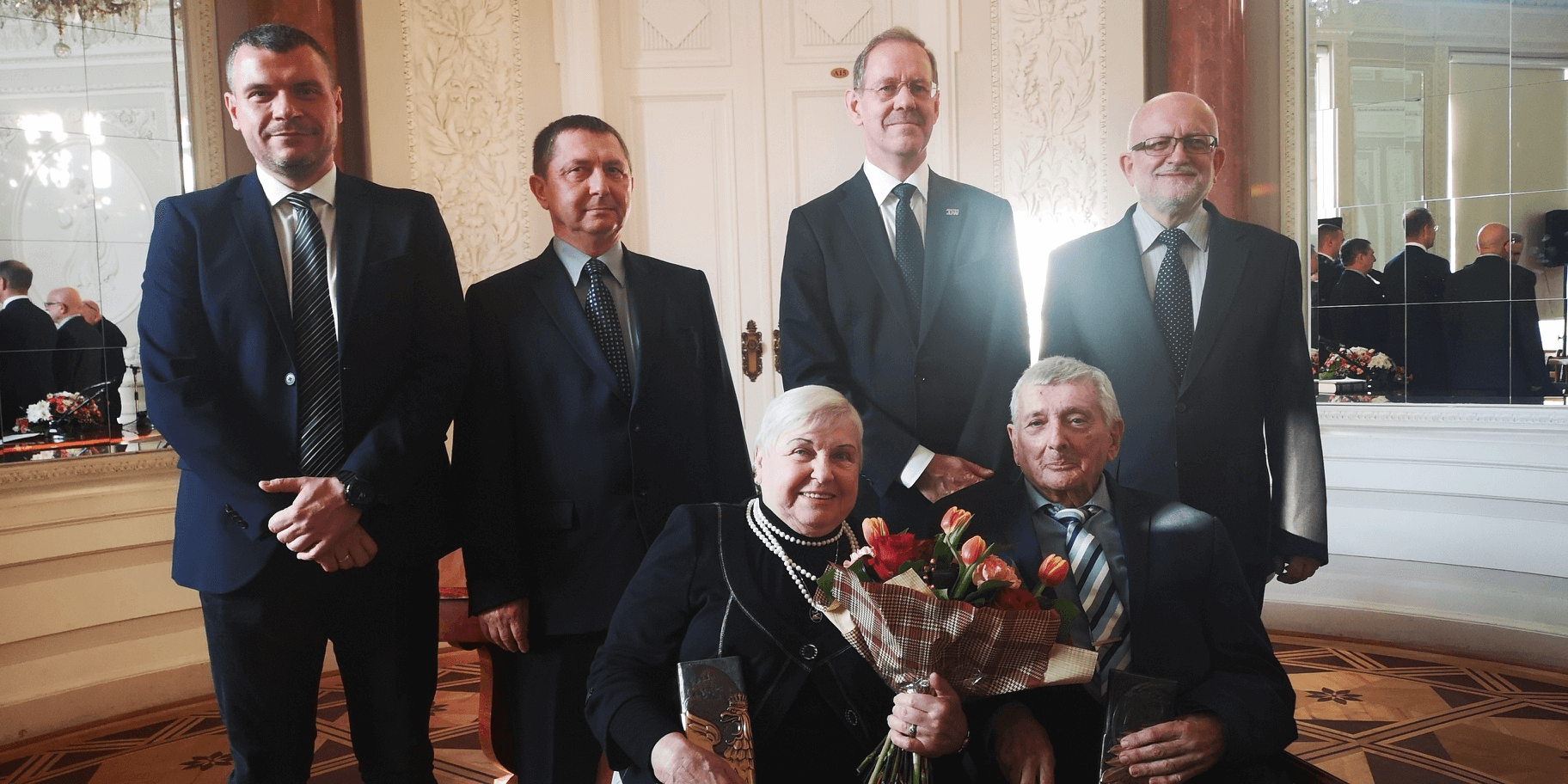The Polonicum Award
About the award

The Polonicum Award, established by the former Director of the Centre for Polish Language and Culture for Foreigners “Polonicum” of the University of Warsaw, Prof. Ryszard Kulesza, is granted to foreign researchers for remarkable achievements in popularizing the Polish language and knowledge of Polish culture and history worldwide. The aim of the Award is to promote Polish culture in the domain of language, literature, culture, history and art abroad.
The Award is granted once a year. Pursuing the terms and regulations, the winner receives a bronze statuette and a commemorative diploma. The awarding ceremony takes place in November during the celebration of the University of Warsaw Day.
The winner is selected by the Polonicum Award Committee, formed by:
– Rector of the University of Warsaw or his/her representative,
– The Marshal of the Senate of the Republic of Poland or his/her representative,
– Polish minister responsible for culture and national heritage or his/her representative,
– Polish minister responsible for higher education or his/her representative,
– President of the Association “Wspólnota Polska” (“Polish Community”) or his/her representative,
– Director of the Polish National Library or his/her representative,
– Dean of the Faculty of Polish Studies of the University of Warsaw,
– Chair of the Scientific Board of Centre “Polonicum” of the University of Warsaw,
– Director of Centre “Polonicum” of the University of Warsaw.
The Rector of the University of Warsaw, the Marshal of the Senate of the Republic of Poland and the Minister of Culture and National Heritage of the Republic of Poland have taken patronage over the Award.
Rules for submitting applications
Candidates for the Polonicum Award are people who spread the good name of Poland in the world through their attitude and activity, who are distinguished by their impressive academic achievements, unwavering enthusiasm, pedagogical and organizational talent and, above all, their fascination with the Polish language and culture. Candidates for the award demonstrate popularising efforts that go beyond their regular duties.
We would like to kindly invite you to submit your candidate’s application for the Polonicum 2021 Award together with the documentation of their activity.
Required documents:
– application – the candidate’s CV
– characteristics of the candidate’s output
– bibliography of the candidate
– recommendations of individuals or institutions supporting the application
– if possible, printouts of articles, first pages of books, etc.
The documents must be submitted by 31 May 2021 to the following address:
Uniwersytet Warszawski
Centrum Języka Polskiego i Kultury Polskiej dla Cudzoziemców „Polonicum”
- Krakowskie Przedmieście 26/28
00-927 Warszawa
with an annotation „Nagroda Polonicum 2021” on the envelope.
Or by e-mail: nagrodapolonicum@uw.edu.pl
Thank you for all the applications and recommendations for the Polonicum Award submitted so far.
Polonicum Award laureates
Prof. Cheong Byung Kwon, Hankuk University of Foreign Studies, South Korea
Prof. Tamara Trojanowska, Department of Slavic Languages and Literatures, University of Toronto, Canada
Department of Polish Studies, University of Ostrava, Czech Republic
Prof. Oskar Swan, University of Pittsburgh, USA
Department of Polish Language and Literature in the Institute of Slavic Philology, Complutense University, Madrid, Spain
Polish Language Centre of Vilnius University (Vilniaus Universiteto Lenku Philologijos Centras), Lithuania
Prof. Yi Lijun, Beijing Foreign Studies University, Beijing, China
Desiderio Nawarro Perez, “Criterios” Theoretical and Cultural Center, Havana, Cuba
Department of Polish Language and Literature, University of Zagreb, Croatia
Prof. Zuzanna Topolińska, Ss. Cyril and Methodius University, Skopje, Macedonia
Dr Dorota Walczak-Delanois, Free University of Brussels, Belgium
Prof. Wiktoria Liczkiewicz, Kamianets-Podilsky Ivan Ohienko National University, Ukraine
Prof. Luca Bernardini, Institute for Linguistic, Philological and Literary Research, University of Milan, Italy
Prof. Alla Kozhinova, Polish Language Section of the Department of Theoretical and Slavic Linguistics of the Belarusian State University, Minsk, Belarus
Paivi Paloposki, translator, populariser of the Polish language, Finland
Department of Slavic Languages and Cultures of the Faculty of Foreign Languages and Regional Studies, M.V. Lomonosov Moscow State University, Russia
Prof. Alois Woldan, University of Vienna, Austria
Department of Slavic Languages and Literatures, University of Wisconsin-Madison, USA
Department of Western Slavic Studies, Leipzig University, Germany
Prof. Angel Enrique Díaz-Pintado Hilario, University of Granada, Spain
Prof. Panayot Karagyozov, Sofia University “St. Kliment Ohridski”, Bulgaria
Prof. Constantin Geambaşu from Romania, Bucharest University, Romania
Prof. Marie Sobotková, Palacký University in Olomouc, Czech Republic
Dr Liliana Madelska, University of Vienna, Austria
Prof. Algis Kalėda, Vilnius University, Lithuania
Prof. Yang Deyou from China, Foreign Language and Literature School, Shanxi University, China
Mgr Helena Rajca-Suchocka, Banaras Hindu University, Varanasi, India
Prof. Alla Kravchuk, Department of Polish Philology, Ivan Franko National University of Lviv, Ukraine
Prof. Theodor Kanitzer, Austrian-Polish Society, Vienna International Chopin Society and International Federation of Chopin Societies, Austria
Dr Olaf Kühl, translator of Polish literature, Germany
Prof. Janusz Bańczerowski, Department of Polish Philology, Eotvos Landt University (ELTE) in Budapest, Hungary
Prof. Marta Pančíková, Department of Slavic Studies, Faculty of Philosophy, Ostrava University, Czech Republic
Dr. Małgorzata Majewska-Meyers, University of Potsdam, Germany
Polish Library in Paris, France
Dr David Kolbaia, Georgia (Centre for Eastern Europe Studies at Warsaw University)
Polish Studies Center, Indiana University in Bloomington, USA
Department of Russian and Slavic Studies at the Trinity College Dublin University, Ireland
Prof. Margreta Grigorova, Department of Slavic Studies at the University of Ss. Cyril and Methodius in Veliko Tarnovo, Bulgaria
Astrit Beqiraj, translator of Polish literature, Albania
Prof. Svetlana Musijenko, Department of Polish Philology, Grodno University, Belarus
Prof. Gabriel Moked, Ben Gurion University of Beer Sheva, Israel
The prize was not awarded due to the epidemic of SARS-CoV-2.

